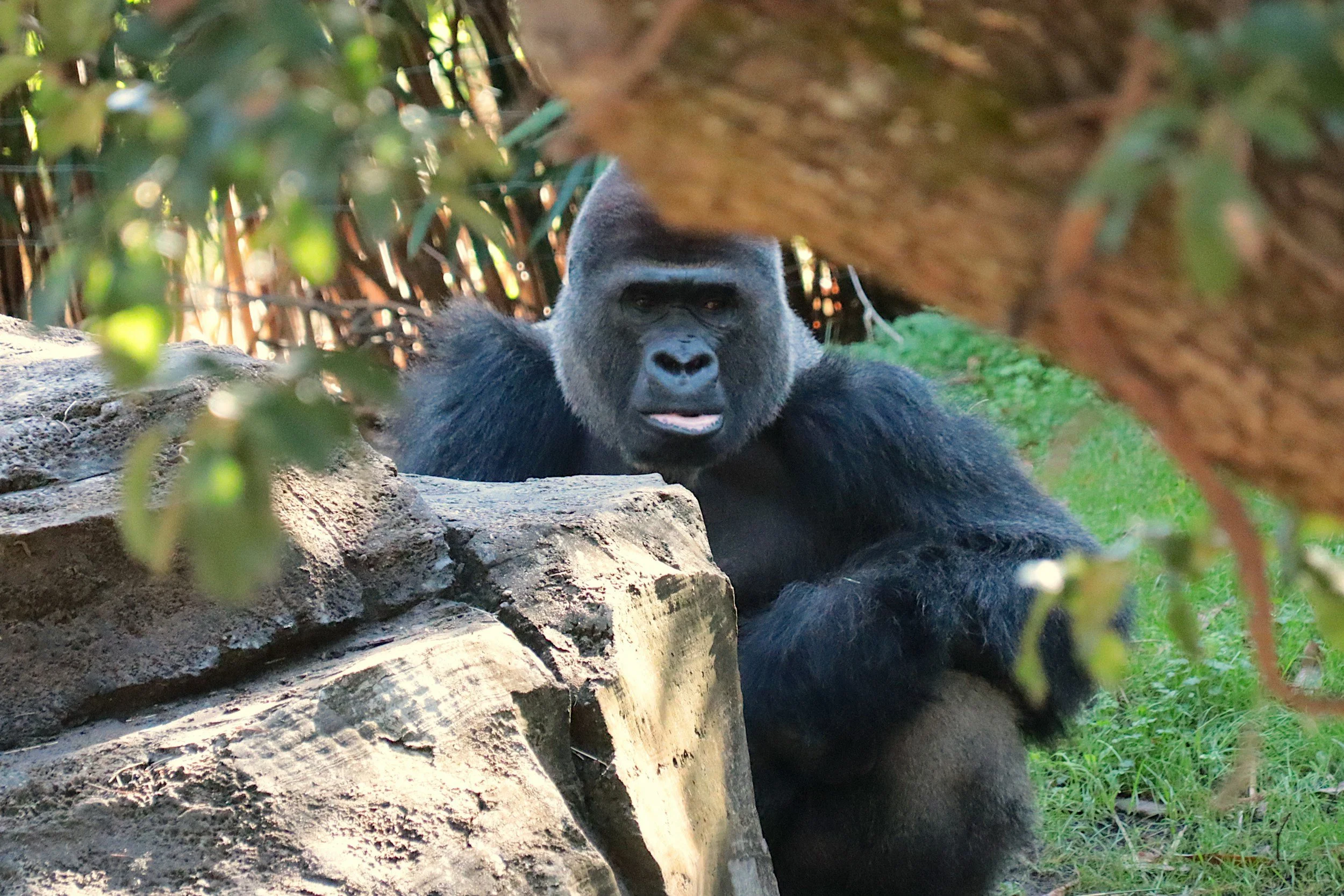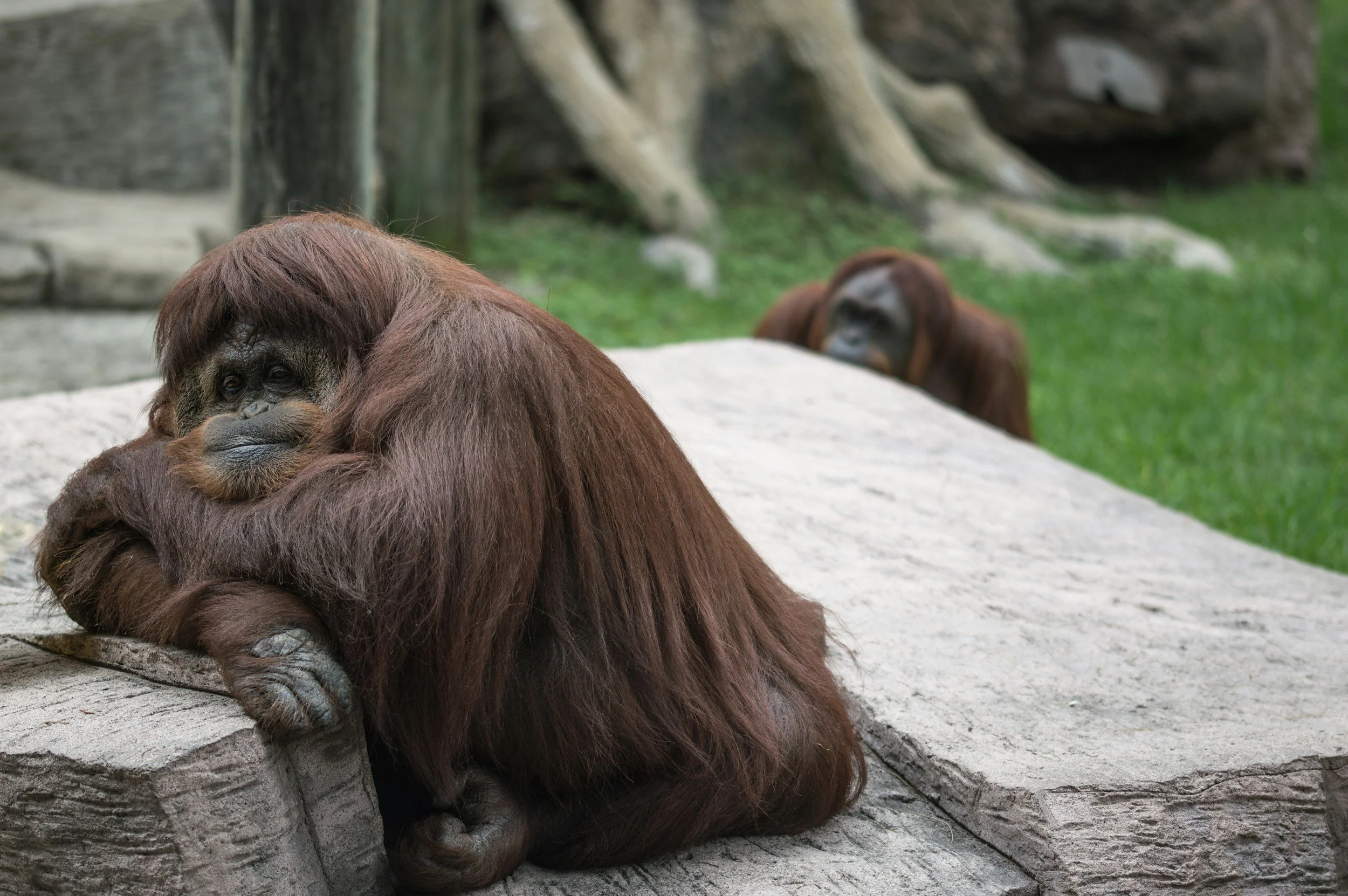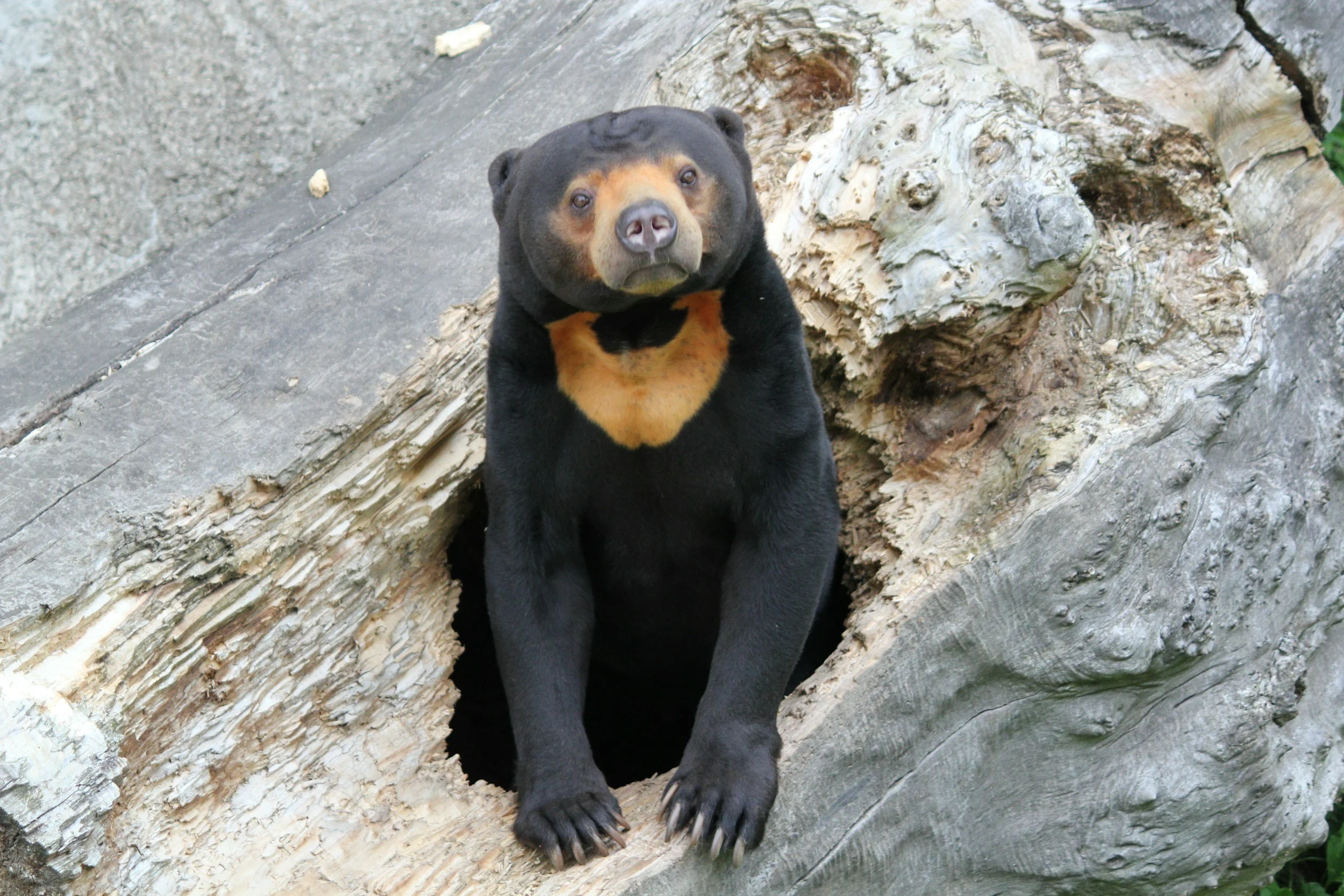Great apes should be phased out of zoos, conservationists say, as new report exposes suffering
Experts warn that keeping great apes in captivity fails conservation goals and causes serious physical and psychological harm to these primates.
Great apes should not be held in zoos, according to a new report supported by leading conservationists, raising questions about the ethics of keeping animals in captivity.
International wildlife NGO Born Free is calling for great apes to be phased out from zoos, and is urging the public to boycott these entertainment venues.
The report, Our Captive Cousins: The Plight of Great Apes in Zoos, found that more than 1,500 great apes are held in zoos across Europe alone, and are experiencing chronic stress, heart disease, obesity and poor mental health alongside traumatic events like infanticide, stillbirths and maternal rejection.
"Great apes are highly intelligent, emotional beings. They're sentient beings. They feel joy and pain and captivity simply cannot provide for the social structures and the intellectual complexity that these great apes need anymore," Chris Lewis, Born Free’s Captivity Research and Policy Manager, told ITV News.
The paper explores scientific literature, decades of observation and case studies that shows the impact of keeping great apes in these environments, concluding that zoos will never meet the primates’ complex physical, emotional and social needs.
Born Free’s campaign to phase great apes out of zoos is backed by a range of conservation experts and celebrities, including Chris Packham, Ian Redmond, Jimmy and Jenny Desmond, and Nicky Campbell.
Great apes, which include gorillas, orangutans, chimpanzees and bonobos, are highly intelligent, socially and emotionally complex beings, who share more than 98 percent of their DNA with human animals.
“When I see a great ape looking at me from behind the bars or reinforced glass in a zoo, something in me falters,” says Dame Virginia McKenna DBE and co-founder of Born Free.
“Their eyes reflect a depth of feeling we instinctively recognise, connect and empathise with. We share their sense of a loss of freedom, of purpose, of self. These intelligent, feeling beings do not belong in cages.
“We must find the courage simply to say: the keeping of our closest cousins in captivity for our entertainment must end.”
The report also counters claims by zoos that the confinement and breeding of great apes in captivity is important for the conservation of their species.
Zoo-bred great apes are genetically and behaviourally unsuitable for release into the wild, says Born Free, and releasing zoo-bred apes poses serious risks to wild populations, as confirmed by the International Union for the Conservation of Nature (IUCN).
A separate 2021 report by Born Free, Financing Conservation or Funding Captivity?, revealed that even members of the Consortium of Charitable Zoos, which represents some of the largest zoos in the UK, only contribute on average 4.2 percent of their revenue to in situ conservation.
Lewis argues that maintaining animals on display in zoos is an inefficient way to generate funds for conservation and may even distract from the real need to focus on genuine conservation activities in the wild.
"Almost every great ape species is threatened with extinction. Their populations are declining but what that also shows is that keeping these great apes in zoos is doing nothing to boost these numbers and, if anything, it's offering a distraction.
"The only great ape species that is actually improving in the wild is the mountain gorilla, and that's one of the few great ape species that isn't kept in zoos.
"Zoos started off as menageries. They started off as places of entertainment and collections of animals and sadly, what has happened is, they've tried to pivot their business model to try and justify their conservation and education benefits.
"In reality, their business model for conservation and education is fundamentally flawed because the amount of space zoos can provide to animals is limited.
"People want to go to a zoo and see a vast variety of animals. Therefore, they're greatly limited in the number of animals they can keep, the space they can provide, and also that greatly hinders any potential breeding programme, which is to create an insurance population because there is not enough space, sadly."
Born Free is calling for the gradual phasing out of the keeping of great apes in zoos around the world. They say the process would require an end to captive breeding and animal imports. Then, as the numbers of animals in zoos gradually reduce, those remaining would be kept in the best conditions possible and continue to receive lifetime care until their passing.
Will Travers, Born Free’s co-founder and executive president, says that: “Wild great apes and the places they live in around the world are crying out for help.
“Treating them as living commodities, to be stared at rather than admired and celebrated, shows us that, while humans may dominate this planet of the apes, we know the price of everything but the value of nothing.”
Listen to Species Unite podcast episode: S12. E15: John Kinder: World War Zoos. What happened to the world’s zoos—and the animals inside them—during World War II? Showing how many of the ethical blind spots that existed during wartime remain with us today. In an age of climate crisis and mass extinction, this conversation asks: what do zoos really stand for—and who are they really serving?
We Have A Favor To Ask…
Species Unite amplifies well-researched solutions to some of the most abusive animal industries operating today.
At this crucial moment, with worldwide momentum for change building, it’s vital we share these animal-free solutions with the world - and we need your help.
We’re a nonprofit, and so to keep sharing these solutions, we’re relying on you - with your support, we can continue our essential work in growing a powerful community of animal advocates this year.





The potential transformation of the Oregon National Primate Research Center could offer freedom to thousands of monkeys used in biomedical research.